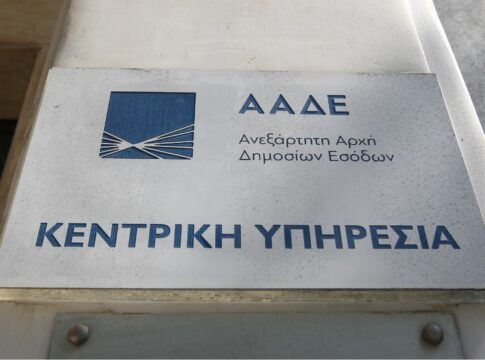By G. Kampourakis
[email protected]
Greek Prime Minister Alexis Tsipras this week is again expected make a nationwide address – via the state broadcaster – to commemorate the end of the bailout era in the country, with the first memorandum adjustment program signed in 2010 and the third (and last) officially ending on Monday.
According to reports circulated over the weekend, Tsipras’ message will attempt to delineate a “political manifesto” for the coming period, one that will emphasize the fact that his government is now free to determine and exercise fiscal policy, regardless of whatever standing and long-term commitments Athens still has vis-a-vis institutional creditors, particularly its European partners.
The erstwhile radical leftist leader’s televised appearance will ostensibly be part of planning, being formulated since June 2018 by his top associates and aides, to highlight the end of the memorandum era and reverse utterly sagging voter approval ratings. Tsipras’ hard left SYRIZA party trails center-right New Democracy (ND) by double-digit percentage points in practically all mainstream opinion polls for the past year and a half. The junior coalition partner in his government, the small right-wing Independent Greeks’ party (AN.EL), also cannot exceed 3 percent of respondents’ preferences in opinion polls. Exceeding the 3-percent threshold in general elections (of valid votes, nationwide) is necessary for Parliament representation.
Although more celebratory commemorations for the end of the third bailout were originally planned, last month’s deadly wildfire in eastern coastal Attica prefecture buried the initiative.
Besides a nationally televised address, the second high-profile step in the leftist-rightist coalition government’s “game plan” will apparently be a Cabinet reshuffle. Sources close to the government have pointed to a reshuffle “within a matter of days”, with the next major date on Tsipras’ political calendar being the annual Thessaloniki International Fair (TIF) in early September.
The trade exhibition serves as the unofficial venue for an annual state-of-the-economy address by Greek prime ministers, and is expected to be the “third step” in Tsipras and his government’s attempt to regain political momentum heading into an election year.
As the main opposition leader, Tsipras had previously unveiled his “Thessaloniki program” from the same venue, mostly a welfare spending spree and state-funded investment framework that was left on the “drawing board” after his government signed and delivered the third bailout in the summer of 2015.
The United States will be this year’s “honored country” at the 2018 TIF, meaning that the attendance of high-ranking US officials is a distinct possibility.
While details are still sketchy, previous reports point to an announcement of reduced property tax rates (ENFIA) by as much as 30 percent and possible reductions in skyrocketing social security contributions paid by wage-earners and their employers. The embattled Greek prime minister is also expected to promise a gradual increase in monthly wages and a possible return of mandatory collective bargaining contracts, the latter abolished as a result of memorandum obligations to creditors.
What remains to be seen is whether the 44-year-old Greek premier will refer to the political “hot potato” entailed in scheduled pension cuts (affecting roughly 30 percent of all pensioners) as of Jan. 1, 2019. Government sources have cited a postponement of the latest austerity measure as more-or-less a given, pointing to the acquiescence, in fact, on the part of creditors and not a unilateral action.
Conversely, European leaders at every turn stress the need for Greece to fully implement agreed-to reforms, with the coming social security spending cut as among the most prominent.
A first glimpse of creditors’ flexibility over pending austerity measures will come at a scheduled Eurogroup meeting in late August, the first in the post-bailout “enhanced supervision” era.
Finally, Tsipras’ appearance and address in Thessaloniki in early September will mark the beginning of an extended pre-election season in the thrice bailed-out country, as European Parliament and local government elections are set for May 2019.
A national election must also be held by the autumn of 2019, unless a snap election is declared beforehand, something that political analysts say is a possibility.
Within the year or so left in the current government’s mandate, Tsipras and his limping coalition must also bring to Parliament for ratification a bilateral agreement signed with the neighboring former Yugoslav Republic of Macedonia (fYRoM) to finally resolve the long-standing “name issue”. The so-called “Prespes Agreement” will be the subject of a referendum in the neighboring country on Sept. 30, 2018.















